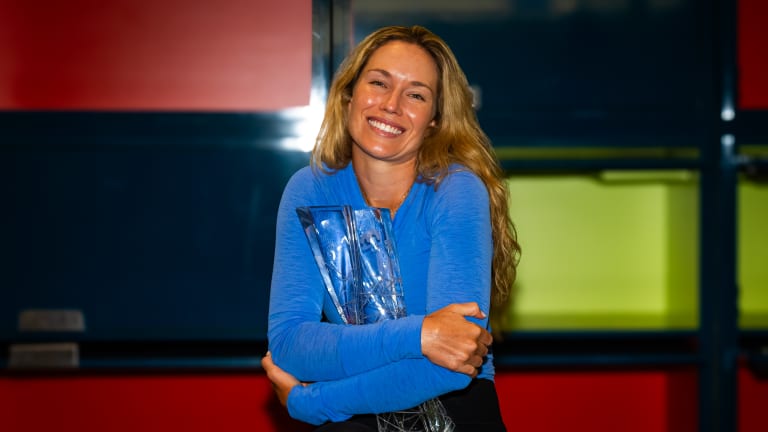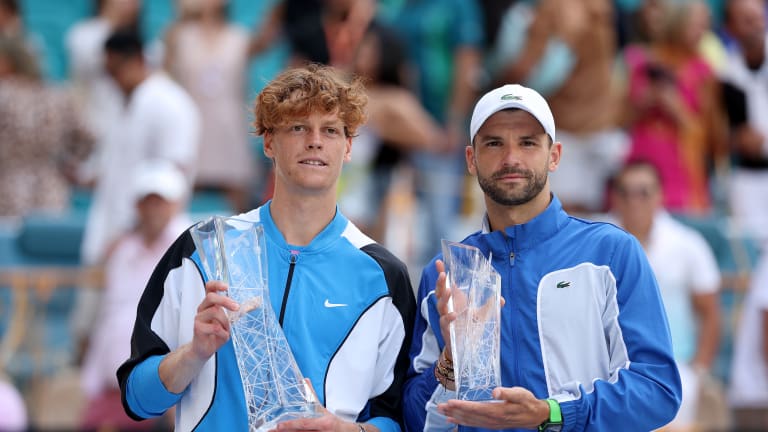Miami, USA
Danielle Collins won an emotional title, while Jannik Sinner won a logical one, at the Miami Open
By Mar 31, 2024Miami, USA
Jannik Sinner tops Grigor Dimitrov for Miami Open title
By Mar 31, 2024Miami, USA
Danielle Collins wins Miami Open on her final try, topping Elena Rybakina in straight sets
By Mar 30, 2024Miami, USA
Danielle Collins defeats Elena Rybakina for Miami Open title, the biggest title of her career
By Mar 30, 2024Miami, USA
What will be stronger in Miami: Jannik Sinner's rise, or Grigor Dimitrov's renaissance?
By Mar 30, 2024Miami, USA
Jannik Sinner, Grigor Dimitrov advance to Miami Open final
By Mar 30, 2024Miami, USA
Who Will Win: Jannik Sinner or Grigor Dimitrov, 2024 Miami Open men's final
By Mar 30, 2024Miami, USA
Who Will Win: Danielle Collins or Elena Rybakina, 2024 Miami Open women's final
By Mar 29, 2024Miami, USA
2024 Miami Open women's final preview: Elena Rybakina vs. Danielle Collins is always 'neck and neck'
By Mar 29, 2024Miami, USA
Miami semifinal previews & picks: Daniil Medvedev vs. Jannik Sinner, Alexander Zverev vs. Grigor Dimitrov
By Mar 29, 2024Miami, USA
Danielle Collins won an emotional title, while Jannik Sinner won a logical one, at the Miami Open
Collins felt like she was “playing in front of thousands of my best friends.” Sinner said his effort showed his “will to improve, day by day.”
Published Mar 31, 2024
Advertising

Collins will soar from No. 53 to just outside the Top 20 in Monday's rankings, and into U.S. Olympic contention.
© 2024 Robert Prange
Advertising
Advertising
Advertising

A runner-up in Miami twice previously, the third time was the charm for Sinner on Sunday.
© Getty Images